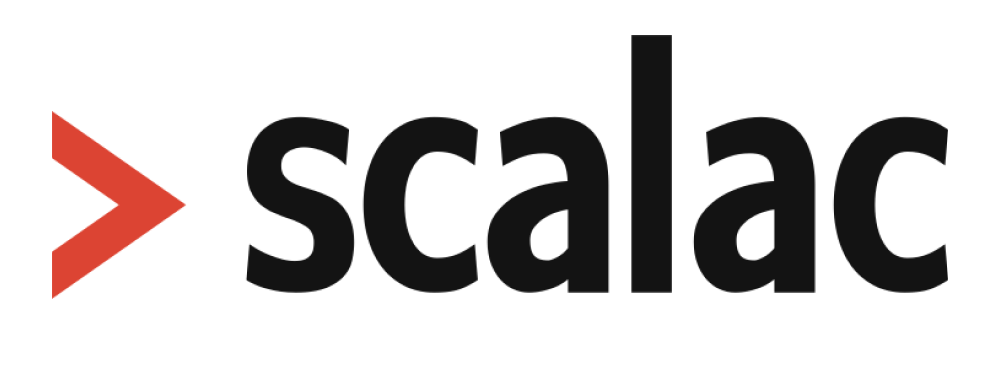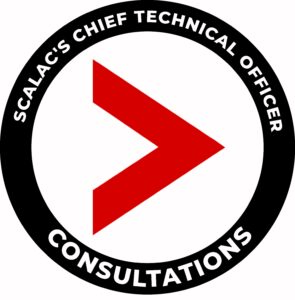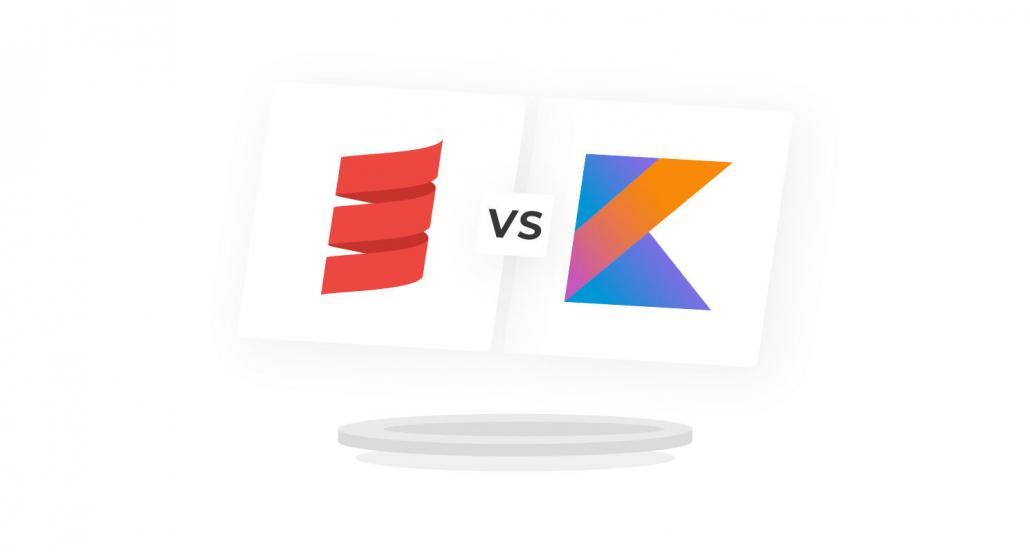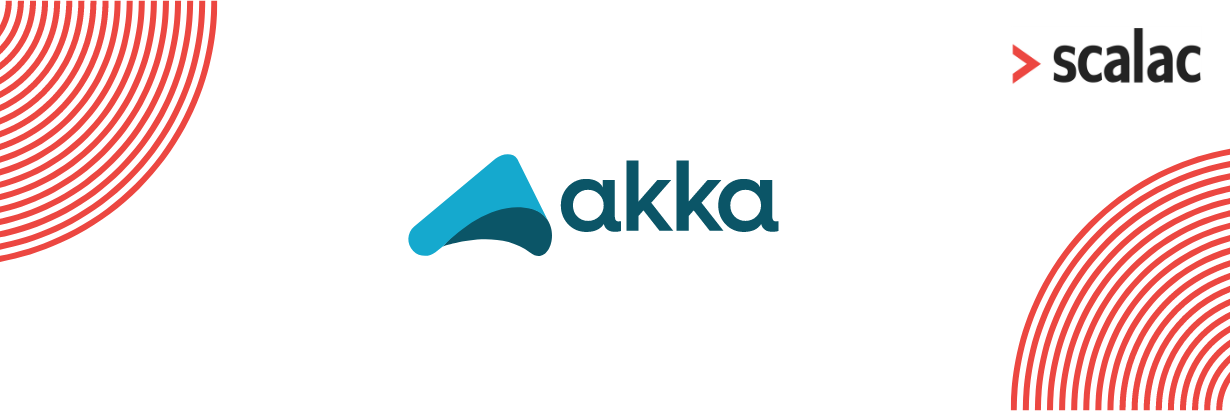
Scala Outsourcing: Everything You Need to Know

A growing number of companies are building applications with Scala. It’s an exceptional server-side language that has found supporters in a wide range of sectors, including fintech, gaming, online streaming, social media, ecommerce, and more. Netflix, Twitter and Airbnb are examples of well-known brands that use Scala.
The popularity of Scala (short for “scalable language”) is due to the wide range of benefits it offers. These include, but are not limited to, a high degree of scalability, syntactic flexibility, hybrid function and object orientation, java interoperability, and ease of testing.
With increased uptake, outsourcing has become a viable, cost-effective means of implementing Scala-based infrastructure for many businesses. Most importantly, it removes the need to hire in-house developers. If you’re eager to take advantage of what Scala has to offer, you might also be considering taking your development projects out of house.
In this article, we’re going to explore the topic of Scala outsourcing in depth. We’ll look at the benefits outsourcing offers compared to building an in-house team, provide a checklist of factors to consider when evaluating candidate companies and outline the process of beginning a partnership with a provider.
Scalac specializes in Scala outsourcing. As such, we have a wealth of experience in this area. We’ll use practical examples drawn from our own projects to illustrate key points, which should in turn help you determine which development route is best for your business.
What Are the Benefits of Outsourcing Scala?
Scala was listed as one of the most popular programming languages in the 2022 Stack Overflow Developer Survey.
But rather than hire in-house developers, many companies are opting to work with established outsourcing companies to develop functionality with Scala.
Let’s take a look at some of the benefits adopting an outsourced approach can have for your business:
Lower costs
This is arguably the most compelling reason to consider an outsourced solution. Scala developers are in high demand. It’s one of the top-paying programming languages, with a median salary in 2022 of $92,780. As a result, hiring in-house developers is typically much more expensive than opting for an outsourcing company like Scalac. Project costs are invariably much cheaper for our corporate clients compared to hiring people from scratch or retraining existing developers.
In-depth experience of managing projects
A good outsourced team will have experience with all stages of the Scala development process, from use-case analysis all the way through to testing and implementation. This knowledge of the development process, as opposed to specific competency with the Scala programming language, is the result of many years of experience and fine-tuning and can take years to hone.
Speed of development
Creating programs with Scala is a relatively fast process when compared to other languages. Combine this ease of use with an established team and development time is cut dramatically. This is in part due to the fact that you won’t have to spend significant amounts of time on recruitment. And even if the outsourcing provider needs to employ new developers, their hiring and onboarding processes will usually be much faster. The other reason for lower development times is that outsourced companies generally have highly efficient workflows that have been built over years of working on different types of projects. Moreover Scala has been designed to make the transition of functionality from an existing codebase as smooth as possible, with limited effects on speed and usability.
Allows for greater focus on in-house proficiencies
By eliminating the need to spend time and resources establishing new competencies in your organization, you can focus entirely on refining what you already do well. This allows you to leverage your existing expertise fully, thereby creating higher-quality software and a better customer experience. You can also extend software capabilities without worrying about the limitations of your workforce’s development competencies.
Increases intellectual capital
Another benefit of engaging an outsourced team is that it increases your organization’s intellectual capital. For example, the moment a client begins working with Scala, they instantly have access to some of the most innovative minds in the industry. This can significantly improve the outcomes of processes that rely on original contributions and creative solutions.
Leads to greater organizational flexibility
Working with outsourced providers requires a higher degree of flexibility from in-house teams than might normally be the case. At first, this might not sound like an obvious benefit. But the structural changes required to accommodate an outsourced team, which the company you’re partnering with will usually assist with, can lead to greater flexibility and efficiency over the long term. Especially when it comes to project management.
Possibility of ongoing maintenance
After the planning, design and implementation phases of a project have been completed, ongoing maintenance becomes the priority. Established outsourcing companies can provide this assistance over the long term, usually for less than the cost of employing in-house developers. Because of its comparatively simple testing environment and lean code base, Scala maintenance and troubleshooting tends to be straightforward. If you do wish to keep maintenance in-house, Scala is a relatively easy language to learn, and outsourcing companies like Scalac can provide training.
Usually more cost-effective than hiring freelancers
Generally speaking, Scala outsourcing can proceed in one of two ways. You can either use an established company or hire individual freelancers, which is sometimes called outstaffing. Outsourcing to a team is typically the better option. Freelancers are in short supply and will still need to work under the guidance of a team leader. They are unlikely to offer any significant time and cost benefits compared to hiring an in-house developer.
What Does the Scala Outsourcing Process Look Like
Because Scala is a multipurpose programming language with a large variety of uses, there isn’t a standard outsourcing process. Client needs often vary significantly. That said, most providers of outsourcing services will include several typical stages.
Here’s how we handle the outsourcing process (prior to beginning development) at Scalac:
- Initial consultation: During this early phase, we assess opportunities in your current codebase and conduct a short discovery call to discuss your application capabilities and needs in depth.
- Roadmap and intake plan: If the project is set to go ahead, we will draft an agreement with your legal team. This will be followed by an in-depth roadmap, with benchmarks and expected Scala functionality outlined in full. You will also receive a full overview of the team that will be built for your project.
- In-person workshop: A multi-day workshop allows us to discuss the scope of your project in depth. It is one of the best ways of laying a solid foundation for future work.
- Interviews with candidates: Finally, we will arrange interviews with candidates, drawing on both yours and Scalac’s experience to find the ideal team members.
As you can see, the process outlined above is designed to offer a high degree of flexibility. And this is mirrored in the solutions that Scalac offers, from packages for one-person team extensions all the way through to complete development projects, including use-case analysis, architecture design, coding, testing, implementation, onboarding and ongoing maintenance.
Factors to Consider When Picking a Scala Outsourcing Company
Use the following checklist to ensure you find an outsourcing provider that is a good fit for your organization:
Developer competencies
Before you consider an outsourcing company, you need to ask one question above all others: “Can an outsourced team work with our existing development languages?”. This is especially the case when transitioning from an existing codebase, such as when Twitter moved from Ruby on Rails to Scala.
Nearshore and offshore
The term “nearshore outsourcing” refers to outsourcing to countries that are nearby with similar time zones. An example of nearshore outsourcing would be a German company that works with a team in Poland. Conversely, offshore companies operate in a timezone with several hours of time difference. While offshoring may be cheaper, it presents challenges to working together closely. Most Scala developers are based in the United States and Europe.
Industry reputation
How are potential providers regarded by others in the industry? For example, Scalac is active in hosting and attending conferences that cover Scala (like Functional World), publishing thought-leadership pieces (across a variety of mediums), and has published numerous case studies of high-profile clients.
Quality assurance processes
If you envision outsourcing all stages of the development lifecycle, it is crucial to ensure that rigorous quality assurance processes are in place. While Scala is a relatively easy programming language to test and troubleshoot, with few runtime bugs, it is important to clarify how software will be reviewed before implementation.
Similar solutions
Closely related to the above point is the consideration of whether or not a development team has experience with similar applications to yours. Scala lends itself to a range of application types, from gaming to ecommerce. Nonetheless, experience developing similar functionality to that involved in your project is still valuable.
Data security
How will the outsourcing provider handle your data? If you have stringent controls and requirements covering how both internal and customer data can be stored and used, you should check that the appropriate security infrastructure is in place.
Partner companies
Sometimes issues will arise during the course of a development process that the outsourcing company is unable to handle. In these cases, it will be necessary to enlist the help of a partner with relevant expertise. Determine whether or not a potential provider has relationships with other development companies. For example, Scalac maintains a portfolio of experts with expertise in other development areas that can be contacted quickly if the need arises.
Progress updates
Will the outsourced team provide updates referencing clear key performance indicators (KPIs) and data-based goals? At Scalac, we consider regular updates to be an essential part of the client relationship. Along with a dedicated project coordinator that our clients can contact, we also run regular feedback calls, planning sessions, and daily team meetings.
Communication methods
Will you have a direct, permanent point of contact? Is the outsourced team willing to apply ongoing feedback, or will they expect to work independently for the bulk of the project? Will you be able to speak to developers directly? Are they able to use your preferred project management platform?
Demos and “trial periods”
Many outsourcing companies offer a preliminary “trial period” in which you can test whether or not the outsourced solution works effectively for you. This is something that Scala offers. If you have got to the point where you are ready to enlist the help of an outsourced team and have agreed on project specifications, it is unlikely that the need to end a contract in this early stage will arise. However, it is a useful “emergency button” in the rare case that expectations are not met.
Cultural differences
This might seem like a minor concern, but it’s not to be underestimated. The first and most obvious issue is language. If you will be working with a dev team directly, you must be able to communicate effectively. Many outsourcing companies will use English as a universal language to overcome this obstacle. Similarly, there may be different expectations regarding working hours, social norms, and how feedback is shared.
In-house training
If you do not intend to hire an outsourced team over the long term, it is important to determine if any in-house training will be provided, even if it is only in the form of transferring knowledge to your current developers.
We’ll Put Scala to Work for Your Business
At Scalac, we’ve provided outsourced Scala services to some of the world’s top brands for decades. We combine unparalleled experience with a proven ability to innovate.
And talking of tradition, we also believe in values that it’s not always “fashionable” to talk about: empathy, trust, and a willingness to listen.
If you’re looking for an outsourced solution, we’d love to discuss your needs. Get in touch today to speak to one of our Scala specialists. We guarantee you won’t be disappointed.











